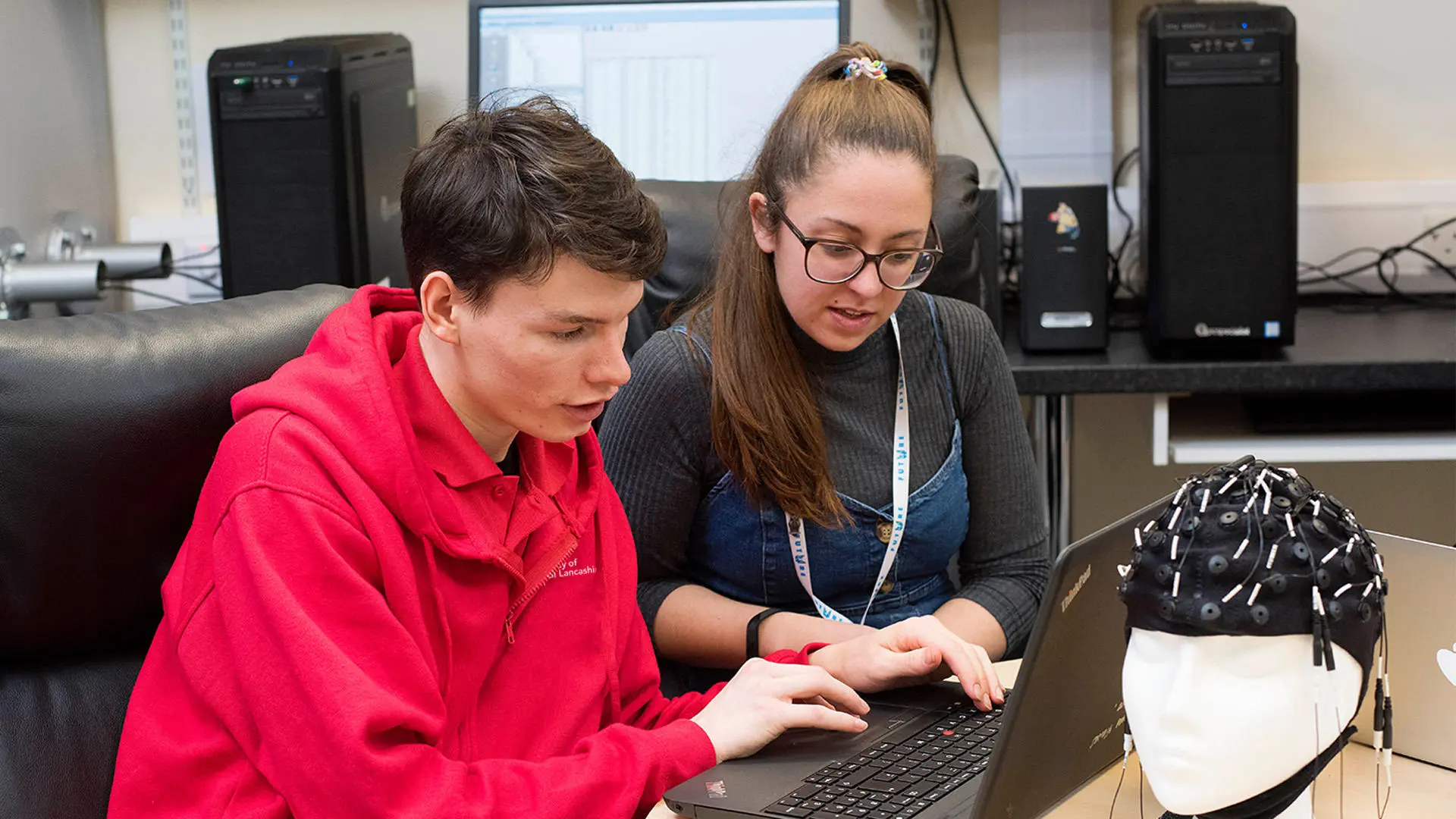Mature student Spike Joyce is celebrating his success, after achieving a first-class honours degree in Forensic Psychology.
Spike, who lives in Kendal, Cumbria, embarked on his Forensic Psychology degree in 2017, studying part-time.
He explains: “I chose UCLan for several reasons. I went to college in Preston and used to train with the Uni Jiu Jitsu club so have a history there. I live in the Lake District, which means it’s accessible via train. Plus, my wife achieved her Doctorate in Psychology at UCLan and painted a wonderful picture of the department, its staff and their facilities.
As a mature student, I already had a degree (St Martins, Art). My old art department was very small and family like, whereas there’s quite a lot of new students each year into the Psychology department at UCLan. That said, I was afforded all the info where I needed to be, who my academic adviser was, who to see for timetabling issues etc. I do feel, that despite the number of students, UCLan does very well with the holistic aspect of student welfare, support and dealing with any issues that arise for individuals. That goes for everything from faculty, to student reps to the full Students’ Union and all the clubs that are available for people to join.
"Each module was presented in great detail in such a manner that not only made the content accessible, but also dynamically relevant to multiple future career directions and applications."
The tutors have been fantastic, not only are they completely on point in regards to knowledge and accuracy of the subject and topics, but they are human and humane. By that I mean, they are approachable, open, discursive, responsive and understanding, often conveying their passion for the subject within a very accessible manner that leads to developing critical evaluation.
Through my part-time employment, I was lucky enough to gain access to the ‘Building Better Relationships’ programme facilitation run through the Probation Service. The opportunity afforded me great insight into the difficulties of facilitating a strictly directed and time-monitored course, to a variety of individuals of differing backgrounds and learning requirements.
What I enjoyed was seeing the passion of the facilitators to achieve targets, engage their clients and strive to achieve real, and important, long-term results. The placement didn’t really impact my learning, other than to encourage me to achieve my goals; what it did was to afford me an insight into the day-to-day reality of programme facilitation and the inherent issues connected with its delivery. There is a fantastic paper by Renehan (2021) that I would recommend to everyone.
I’m continuing my journey with UCLan and am about to start on the Masters in Applied Forensic Psychology part-time, but I’ve also gained a student placement with the Psychology department of HMPPS. I’ll be completing paid work part-time over two years at HMP Wymott and absorbing as much as I can of what will be going on around me within a busy and applied psychology department.
I would encourage others to focus on achieving what you set out for academically, make every effort you can to engage with the staff about the topics. Don’t isolate yourself! Read your feedback! Discuss your feedback and make the advised changes. The staff want you to do well too and are really helpful. Also, the careers office are incredible, if you have a planned career, speak with them about strengthening your CV via volunteering or part-time work or placements.”
Find out more
- Subject
Psychology

